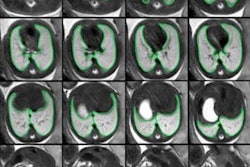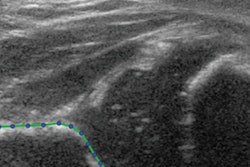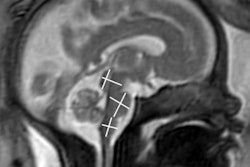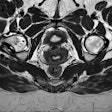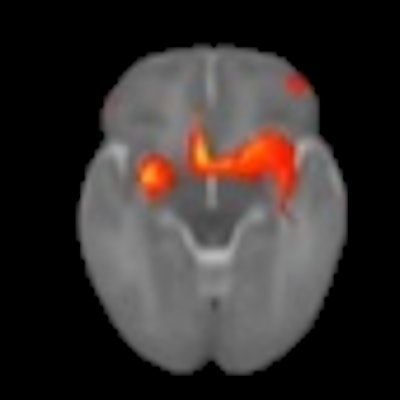
Brain MRI scans of babies born during the COVID-19 pandemic support findings that depression and anxiety in pregnant women can affect early brain development, according to a presentation at the annual meeting of the International Society for Magnetic Resonance in Medicine (ISMRM).
 Catherine Lebel, PhD.
Catherine Lebel, PhD.In a session covering COVID-19 neurological disease, Catherine Lebel, PhD, an associate professor of radiology at the University of Calgary in Alberta, Canada, first offered reassurance that infection does not appear to have direct effects on prenatal brain development.
"We know from other viral infections that there can be quite substantial effects on infant brains -- think of Zika for example," she said.
The ISMRM is holding this week's meeting in conjunction with the European Society for Magnetic Resonance in Medicine and Biology and the International Society for MR Radiographers and Technologists.
What are the effects of COVID-19 on infants?
There has been uncertainty on the impact of COVID-19 on infants. A study last fall showed there were no growth abnormalities on fetal MRI after maternal prenatal infection. Another study in January showed infant developmental differences at six months were not related to prenatal COVID-19 infection, Lebel said.
"This is reassuring, that the effects of prenatal infection are probably mild, if they are there," she said.
On the other hand, such reassurance can't be offered when considering the indirect effects of COVID-19 on infants, namely changes in the brain due to prenatal distress experienced by mothers during the pandemic, Lebel said.
A large amount of research published before the COVID-19 pandemic has shown that depression and anxiety during pregnancy can cause infant brain alterations, primarily in the frontal and limbic regions, due to prenatal stress. These changes are associated with a variety of negative outcomes in kids, including behavior problems and a higher risk of later mental health challenges, Lebel explained.
Given that pregnant women were disproportionately affected by stress during the COVID-19 pandemic, Lebel and colleagues launched a study to explore these associations in women in Canada.
The researchers surveyed more than 11,000 pregnant women regarding depression, anxiety, life changes, and social support levels prior to delivery. After delivery, the women were surveyed again at three, six, 12, and 24 months (just launched), while babies received brain MRI exams at three months and 12 months.
In all, 111 infants were included in the study for imaging at 3 months old. All babies were full-term and healthy, with two mothers reporting possible COVID-19 infection during pregnancy. In an analysis of MRI scans from 88 babies, the researchers found no gross abnormalities.
"But when we look more quantitatively in detail, we do see associations between prenatal distress and brain connectivity," Lebel said.
Specifically, the group found higher prenatal maternal distress was associated with higher fractional anisotropy (FA) in the right uncinate fasciculus and lower mean diffusivity in the prefrontal amygdala. These results aligned with what has been shown in pre-COVID-19 research, Lebel said.
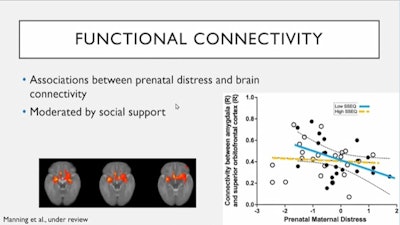 Image courtesy of Catherine Lebel, PhD.
Image courtesy of Catherine Lebel, PhD.In addition, an analysis of structural connectivity on a network level showed that higher depression symptoms in mothers were associated with lower clustering and weaker local efficiency in the default mode network in babies born during the pandemic. This also aligned with pre-COVID-19 research findings, Lebel said.
"We're finding the same kind of regions in our COVID pandemic data, so it's really suggesting that these brain differences we see are probably indicating a higher risk of later behavior and mental health problems in these kids," she said.
Importantly, the findings were moderated by sleep and social support, Lebel added. Higher depression in mothers was associated with weaker brain connectivity in the infants, but it was significant only in infants who weren't getting enough sleep and in mothers with low social support.
With additional data from this ongoing study, the researchers plan to look closer at potential links between imaging and behavior in the group over time.
Ultimately, the study highlights the importance of perinatal mental health support for mothers, Lebel said.
"This is really important for moms, for babies, and for families, and this is true not just during the pandemic, but especially so during the pandemic," she concluded.





